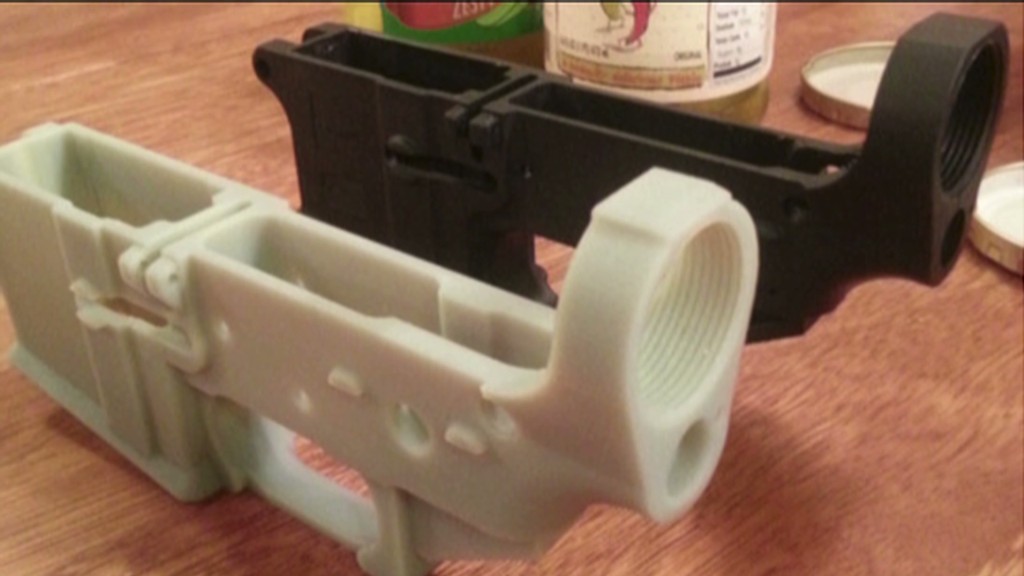
In the wake of the second-deadliest school shooting in American history, 3-D printer company MakerBot is cracking down on downloadable designs for printable gun parts.
Like other 3-D printers, a MakerBot is a machine that creates physical objects. The printer uses a design file as a blueprint, then fabricates the item from layers of plastic material like powder or liquid. The technology has moved from the manufacturing world to an early-adopter customer base of hobbyists, who use the printers to create anything they can design: figurines, iPhone docks, coffee cup holders.
And, in theory, gun parts.
MakerBot runs a website called Thingiverse, which is a database of downloadable design files for a variety of 3-D printers on the market. The site's terms of service have long prohibited "the creation of weapons," but they were loosely enforced, and blueprints for gun parts were available until early this week -- just a few days after the shooting at Connecticut's Sandy Hook Elementary School. CNET was the first to spot MakerBot's crackdown, saying it began on Tuesday.
MakerBot representative Jenifer Howard said no executives were available for an interview, but she provided a short statement saying that the company's "focus is to empower the creative process and make things for good."
Beyond that, MakerBot pointed to Thingiverse's Terms of Service, which stipulate that users cannot "collect, upload, transmit, display, or distribute" any content that "promotes illegal activities or contributes to the creation of weapons, illegal materials or is otherwise objectionable."
Those service terms "have been the same for quite a while and have not changed," Howard said.
MakerBot's crackdown comes amid a growing debate around the potential for 3-D printers to be used to create weapons. Plastic guns are currently illegal under the Undetectable Firearms Act of 1988, which prohibits guns that can't be picked up by metal detectors and X-ray machines. The law expires at the end of 2013, and earlier this month Rep. Steve Israel, a Democrat from New York, announced legislation to renew the ban.
"Congress passed a law banning plastic guns for two decades, when they were just a movie fantasy. With the advent of 3-D printers these guns are suddenly a real possibility," Israel said in a statement at the time.
Israel's legislation came just five days after a group called Defense Distributed posted a YouTube video of a AR-15 assault rifle that included some 3-D printed parts. The group was able to shoot six rounds before the gun failed.
It's part of Defense Distributed's Wiki Weapon Project, which aims to "produce and publish a file for a completely printable gun -- or as near to completely printable as actually possible with current technologies," the group's website says.
Defense Distributed tried to raise funds for the project earlier this year on Indiegogo, a crowdfunding site. Indiegogo suspended the campaign in August, citing "unusual account activity." Since then, Defense Distributed has been collecting donations through its website and posting results of tests using printed gun parts.
Following the Thingiverse crackdown, which removed files the group had been using from the database, Defense Distributed posted a message saying it is "preparing an alternative upload site" and "will no longer develop with the Makerbot in mind."
"How can this decision be described as anything but reactionary and paternalistic?" Defense Distributor founder Cody Wilson asked in an interview with CNNMoney. "Now in the MakerBot universe all objects are not created equal."

